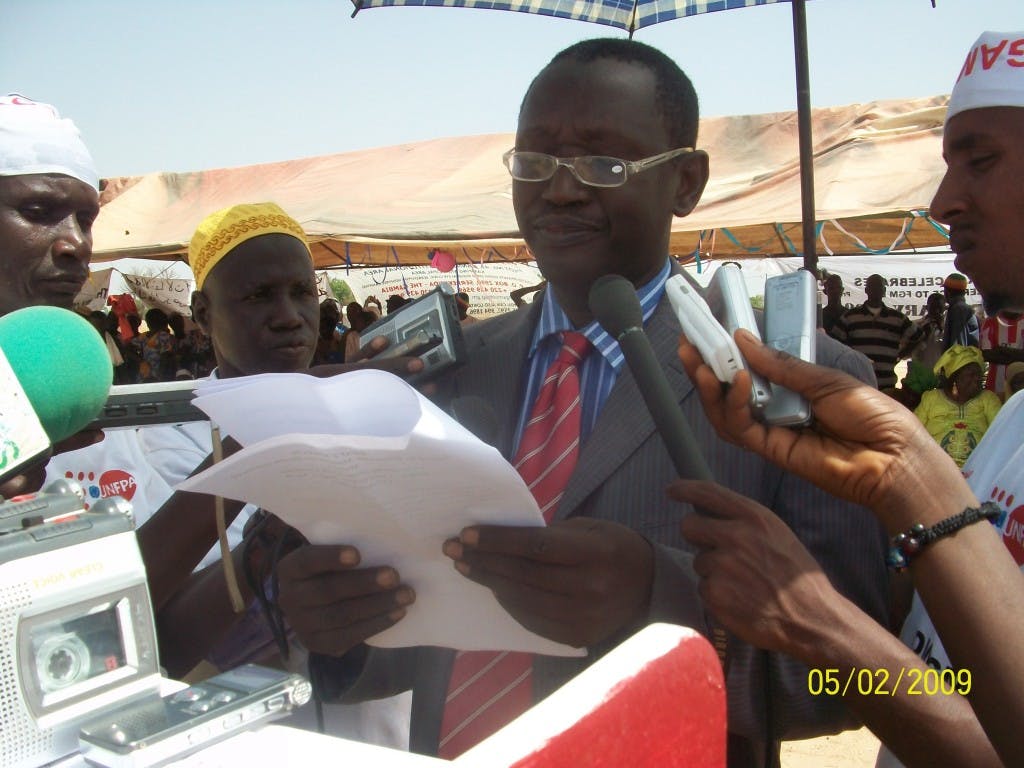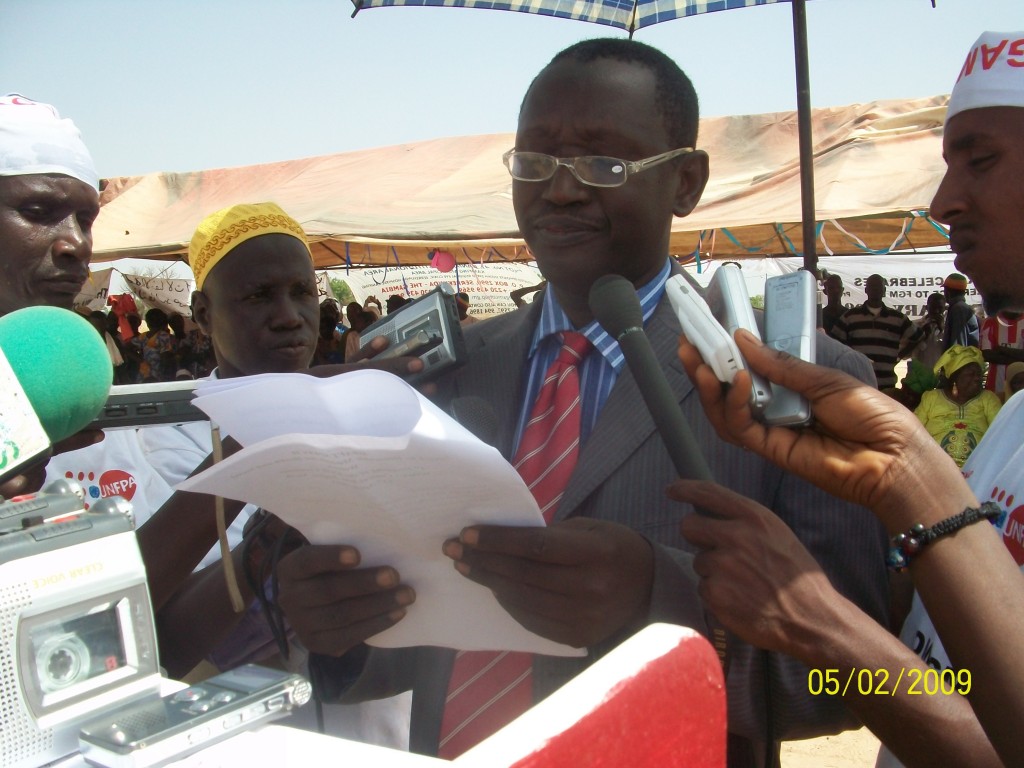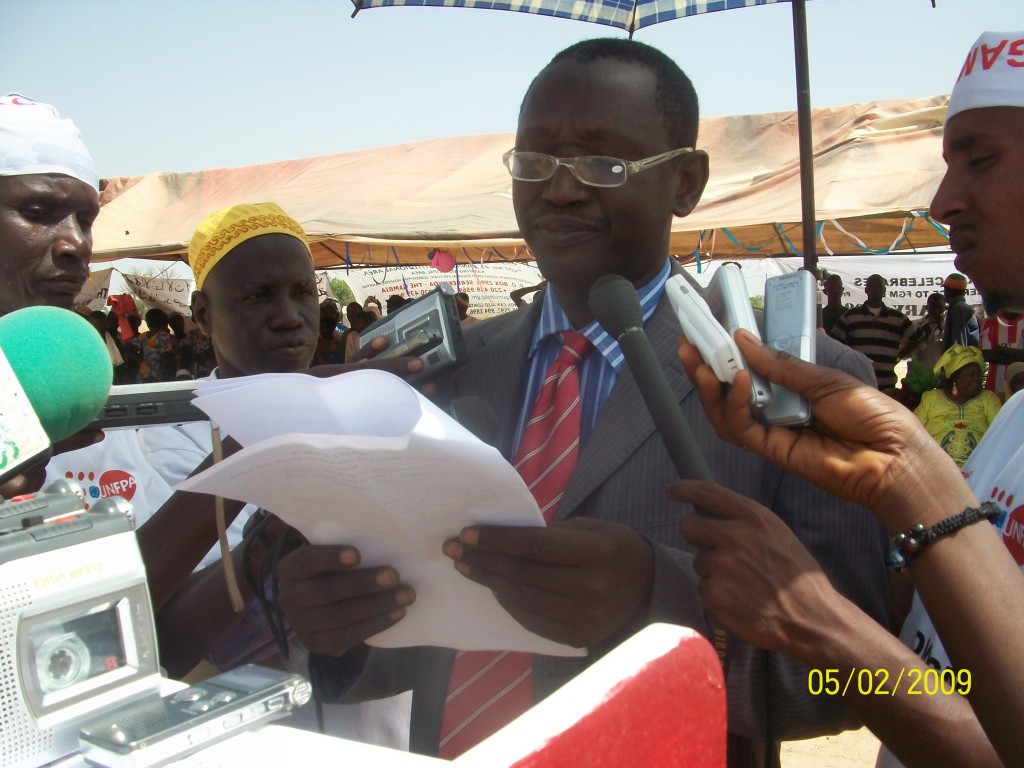Data on Malaria
Jan 21, 2015
First story



DATA SUGGESTS DECLINE IN MALARIA IN CRR
Data revealed at the commemoration of world malaria day on 25 April 2013 in Central River Region some 180 km from the Capital via the south bank, at Ballangharr Village, Lower Saloum District in Central River Region suggests malaria infections are in the decline. According to Jankoba Jabi, the regional director of health services at Central River Region, “comparison data of 2011 and 2012 with reference to regional HMIS reporting system, established 70.4% reduction in confirmed malarial infections in children under five, 59.3% in over five years and 58.2% in pregnant women respectively.” He further stated that 2012 health institutional data reveal that malaria accounts for only 4.6% of the total outpatient consultations. Children constitute a high proportion this. According to Mr Jabi, 38.5% of the outpatient consultations relating to malaria are children under five years. Malaria is endemic in The Gambia and has seasonal variations.Transmission during the rainy season is intense with 80% cases occurring in October according to (Malaria Situational Analysis, 2000). The whole population is at risk. However, children under five years and pregnant women are more vulnerable to the risk of severe malaria” says the regional director Mr.Jankoba Jabi. Jankoba said Malaria is a public health problem in the Gambia, especially in the rural areas, where environmental conditions are conducive for breeding of mosquitoes. 25 April 2013 was the 13th Anniversary Celebration for World Malaria Day. “It is a day set aside to recognize the collaborative efforts of all countries involved in the fight against malaria,” the regional director explained. “Defeat malaria”- encourage people all over the world, from the youngest to the oldest, to make an individual call for the elimination of Malaria, he called. “This plausible statistics suggest a decline in malarial infection that is greatly attributable to aggressive diverse malarial public health interventions championed by the MOH&SW and partners i.e the use of ITNs, IPT, Home base care of Malaria, Indoor residual spraying, National “Setsetal” programme to name a few,” he said. Mr. Jabi noted that, two of the major public health intervention strategies to control malaria in the Gambia are Indoor Residual spraying exercise and National “Setsetal” activities. He told the forum that in 2012 Indoor residual spraying exercise conducted in CRR, 81,012 rooms were sprayed out of a target of 88,828 rooms which translates to 91% coverage of rooms sprayed. The minister of Health and Social Welfare and National Assembly matters, Hon. Bala Garba Jahumpa, has indicated that his ministry would do everything possible to enforce the prevention and control of malaria in the Gambia. “Together we can ‘Roll Back Malaria’ in the Gambia,” The theme for this year’s anniversary is— “Invest in the Future: Defeat Malaria”. Jahumpa said the theme is very fitting as Africa bears 90% of the Malaria burden. The vast majority of malaria deaths occur in Africa south of the Sahara where malaria also presents major Obstacles to social andeconomic development. Although Malaria is curable and preventable, he said the disease kills more than a million people globally each year, mainly young children. He noted that controlling and preventing malaria require a collaborative effort from all sectors of the society; no single person or unit can do it alone, he argued. Therefore, community leaders can help in great deal in advocacy, social mobilisation campaigns and showcase the efforts made against combating the disease, he added. The deputy Programme Manager, Mr. Bala Kandeh has called on the private sector and individuals to invest in the roll back malaria. He expressed his appreciation to the government for according conducive environment in their fight against malaria. He thanked everyone who came to grace the occasion with them. The event was marked by march past by school children, entertainment by traditional communicators and a song on malaria was released.




